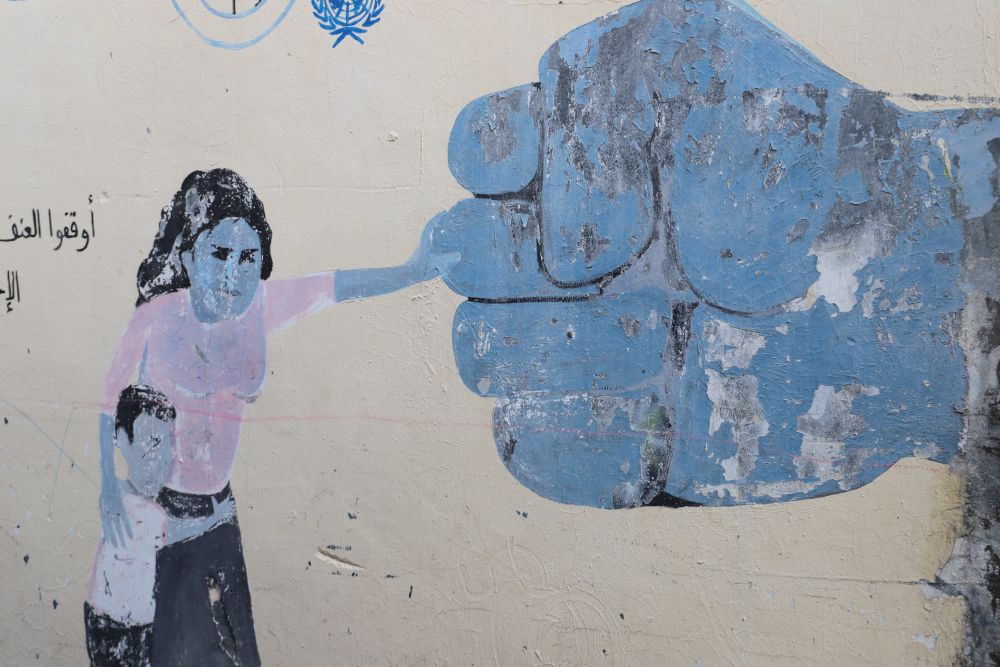From December 8 to 18, 2024, a delegation of nine peasant-farmers traveled to Palestine, in the West Bank. All their organizations are part of the international peasant movement La Via Campesina, which also includes the Palestinian organization UAWC (Union of Agricultural Work Committees) as a member. For many years, La Via Campesina has stood in solidarity with Palestinian peasants in their struggle against colonization, land and water grabs, and the numerous human rights violations they endure. However, since 2023, the scale of massacres in Gaza and the openly genocidal intentions of the far-right Israeli government have led La Via Campesina to intensify its solidarity work with Palestinian farmers. Organizing a delegation visit to the West Bank thus gradually became an imperative.
Due to the obstacles posed by the Israeli state for accessing Palestinian territories, all delegates were European, hailing from the Basque Country, Galicia, Italy, Portugal, Ireland, and France. We, Fanny and Morgan, are both small-scale farmers, based in Ardèche and Brittany, and members of the Confédération Paysanne. The following texts are our journal from these ten days.
From December 8 to 18, 2024, a delegation of nine peasant-farmers traveled to Palestine, in the West Bank. All their organizations are part of the international peasant movement La Via Campesina, which also includes the Palestinian organization UAWC (Union of Agricultural Work Committees) as a member.
Today has been incredibly emotional. We’ve truly come to understand the impossible situation Palestinians in the West Bank are living in. We saw how quickly settlements are being established, stealing farmers’ land, taking over space, seizing power, and trampling on the rights of the residents
This is the Jordan Valley. In this region, more than 80% of the agricultural land has been confiscated for the benefit of Israeli settlers since the 1967 war. This is the lost breadbasket of Palestine.
For the rural people who lived in Zone C, the Oslo agreements had a bitter taste. They remained under the thumb of the Israeli military administration, and contrary to promises of rapid decolonization, the number of settlements grew faster than ever.
The simple act of filing an application to get a building permit costs 45,000 euros on average, and since the vast majority do not have the means to do so, most of the time, Palestinians in Jerusalem build without permits. They have no choice, families are growing. Israel then took advantage of it to order demolitions.
Nadi explains that Israel was built on the myth of a land without people, and that since 1948, the Israeli state has attempted to mould reality to fit this story, though forced displacements and the extermination of Palestinians.
This post is also available in Español and Français.


![La Via Campesina Delegation Visited Palestine in December 2024: Notes from their Daily Diaries [ Part 1 ]](https://viacampesina.org/en/wp-content/uploads/sites/2/2024/12/Palestine6-870x570.jpeg)
![La Via Campesina Delegation Visited Palestine in December 2024: Notes from their Daily Diaries [Part – 2]](https://viacampesina.org/en/wp-content/uploads/sites/2/2025/01/Cover_Diary-2-870x570.jpg)
![La Via Campesina Delegation Visited Palestine in December 2024: Notes from their Daily Diaries [Part – 3]](https://viacampesina.org/en/wp-content/uploads/sites/2/2025/02/Sheep-Farm-870x570.jpg)
![La Via Campesina Delegation Visited Palestine in December 2024: Notes from their Daily Diaries [Part – 4]](https://viacampesina.org/en/wp-content/uploads/sites/2/2025/02/Del1-870x570.jpeg)
![La Via Campesina Delegation Visited Palestine in December 2024: Notes from their Daily Diaries [Part – 5]](https://viacampesina.org/en/wp-content/uploads/sites/2/2025/02/LVC_Palestine-Wires-870x570.jpg)
![La Via Campesina Delegation Visited Palestine in December 2024: Notes from their Daily Diaries [Part – 6]](https://viacampesina.org/en/wp-content/uploads/sites/2/2025/03/Wall-Art_Pal_Beth-870x570.jpg)